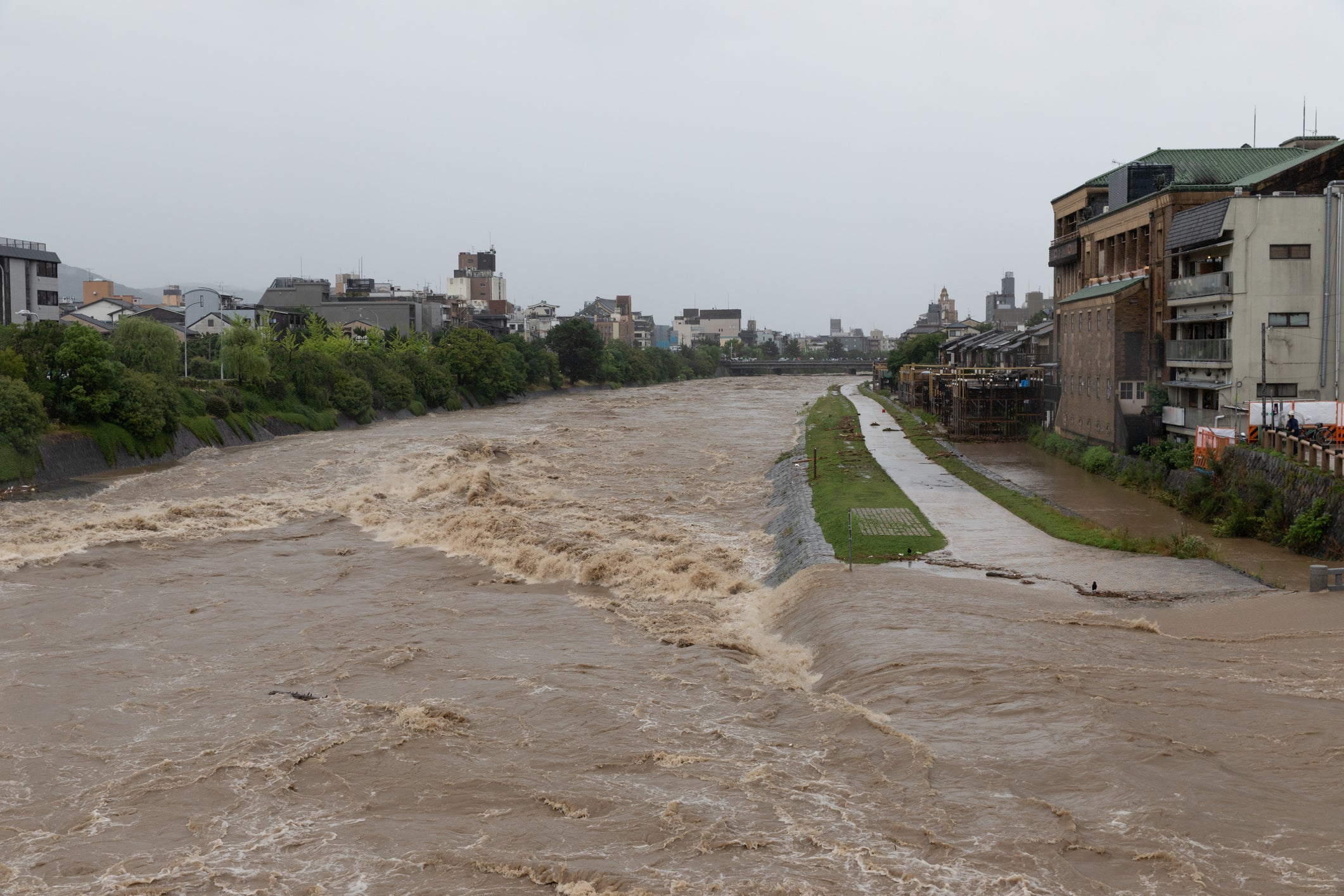Benefits of reducing unnecessary load during disasters
table of contents
Introduction
1.Easy to evacuate with light clothing
2.Easy access to essentials
3. Increased sense of psychological stability
4.Effective use of resources
5. Cooperation with rescue and support activities
6. Improving judgment in emergencies
summary
Introduction
In the event of a disaster, it is necessary to respond to sudden evacuations and emergencies. In such cases, being light is important for ensuring survival and safety. In such situations, ``emergency decluttering'' is useful. In this article, let's explore in detail the benefits of decluttering to reduce unnecessary burden during disasters.
1.Easy to evacuate with light clothing
1-1 Why is light clothing important?
① Possible to act quickly
Being light allows you to act quickly when an emergency evacuation order is issued. If you have a lot of luggage, it will take time to prepare for evacuation and you may be exposed to danger.
②Reducing physical burden
Carrying a lot of luggage can drain your physical strength and lead to fatigue. In the event of a disaster, it is necessary not only to evacuate, but also to deal with the aftermath. Wearing light clothing will reduce the burden of subsequent activities.
③Ensuring safety
If you are carrying a lot of luggage, it may be difficult to move along the evacuation route. Narrow stairs and complicated passageways increase the chance of injury due to luggage getting in the way.
1-2 Specific method
① Selection of essential items
Let's narrow down the things you need during an evacuation to a minimum. Choose the items you need for survival, such as food, water, clothing, medicine, and identification.
②Use of multifunctional items
You can reduce the amount of luggage you carry by choosing one item that can serve multiple functions. For example, a portable light/radio, a tarpaulin/blanket, etc.
③Selecting simple clothing
Clothes should be chosen according to the season and climate, and you can save space by choosing simple and lightweight items.
③ Storage of digital information
By storing much of your information digitally, you can reduce the need to carry around paper documents. Consider keeping important documents and contacts on your smartphone or tablet.
④Periodic inspection
It is difficult to sort through all the luggage at once. By regularly checking your belongings and getting into the habit of eliminating unnecessary items, you can efficiently prepare for evacuation in the event of a disaster.
2.Easy access to essentials
2-1 Why is access to essential goods important?
① Essential for survival
Necessities such as food, water, and medicine are essential for survival. Not being able to access these supplies can jeopardize your health and safety.
② Stress reduction
Anxiety and stress can increase during disasters. Easier access to necessities helps meet basic needs and reduces psychological strain.
③ Complementary support activities
The ability for individuals to access essential supplies is critical even when aid operations and rescue operations are underway. Self-management is possible even in situations where support is insufficient.
2-2 Specific method
①Prepare an emergency bag
Prepare an emergency kit filled with items needed in the event of a disaster. Carry the bare essentials, including food, water, medicine, clothing, lights, batteries, radio, etc.
② Use of durable containers
Choose containers for storing food and water that are durable and airtight. This prevents food spoilage and ensures the availability of essential supplies for a long period of time.
③Best-before date management
Pay attention to expiration dates on essential items and replace them regularly. It is especially important to ensure the freshness and efficacy of medicines and emergency food.
④Collecting information at evacuation sites
Actively collect information provided at evacuation centers and evacuation destinations. Optimize access to essentials by knowing the hours and rules for distribution supplies and services.
⑤ Collaboration with the community
It is important to cooperate with those around you and share information and supplies. Collective cooperation can effectively secure and distribute essential goods.
3. Increased sense of psychological stability
3-1 Why is psychological stability important?
① Calm judgment
It is difficult to make calm decisions amidst anxiety and confusion. Having an organized environment will help you maintain a calm mind.
② Stress reduction
Clutter and unnecessary items around can increase psychological stress. A tidy space can help calm your mind and reduce stress.
③Self-excitation
An organized environment helps in self-excitation. Being in a clean and tidy space will help you maintain a positive mindset.
3-2 Specific method
①Organize items
Organize your room and environment by removing unnecessary items from your daily life. Reduce visual clutter by storing essential items in the right places.
②Maintaining a clean environment
Regular cleaning and hygiene are important to maintain a clean environment. A well-organized space provides a sense of comfort and stability.
③Creating a comfortable space
We create a relaxing space by creating comfortable lighting, colors, and furniture placement. Adjust to suit your individual tastes and sensibilities.
④Items full of memories and hopes
Cultivate positive feelings by placing items that warm your heart or give you a sense of hope.
⑤Mental care habits
It is also important to adopt mental care habits. Try to reduce stress by using meditation, deep breathing, and relaxation techniques.
4.Effective use of resources
4-1 Why is effective use of resources important?
① Sustainable life
If resources are depleted or in short supply, it will be difficult to continue living as an evacuee for a long period of time. Effective use of limited resources can ensure sustainable livelihoods.
② Fairness of sharing
When resources are scarce, fair distribution is required. Efficient use of resources ensures that many people have fair access to the goods they need.
③Reducing the burden on the environment
Reducing the use of limited resources helps reduce the burden on the environment. It is possible to reduce wastage of resources and maintain a sustainable state.
4-2 Specific method
①Efficient use
Use resources such as food, water, and electricity sparingly. It is important to use things sparingly and avoid wasteful consumption.
②Reuse and recycling
By reusing used items, we reduce the consumption of new resources. It is also important to effectively reuse resources through recycling.
③Sharing and cooperation
We foster a culture of sharing resources and helping each other within our communities. Resources can be used effectively through resource sharing and joint activities.
④Focus on what you need
Avoid wasting resources by cutting back on unnecessary items and activities and focusing on what you really need.
⑤Education and enlightenment
We educate and raise awareness about the importance of resources in our communities and families. By raising awareness of the effective use of resources, we can maintain a sustainable state.
5. Cooperation with rescue and support activities
5-1 Why is cooperation in rescue and support activities important?
① Group power
Efficient activities become possible when multiple people work together to participate in rescue and support activities. By combining the power of individuals, we can help more people.
② Information sharing
By working together, information is shared widely. By sharing information such as the situation in the disaster area and necessary relief supplies, accurate assistance can be provided.
Hope and a sense of security for disaster victims : Rescue and support activities provide victims with hope and a sense of security. The cooperative attitude of people is a reassuring presence for disaster victims.
5-2 Specific method
①Building a regional network
Communicate with local people and build a cooperative system in the event of a disaster. Strengthen your connections with your neighbors and create a cooperative system.
② Participation in volunteer activities
You can contribute to supporting disaster-stricken areas by participating in volunteer organizations and local support activities. Cooperation is required in a wide range of areas, including rescue operations, distribution of supplies, and operation of evacuation centers.
③Providing necessary supplies
If supplies are in short supply, you can help by providing needed items. Provide support tailored to local needs, such as food, water, clothing, medicine, etc.
④ Information provision and collaboration
By providing support groups and rescue teams with the information they need, they can provide accurate support. Let's share the local situation and the needs of disaster victims and work together.
⑤Support for rescue teams
It is also important to support the efforts of rescue teams and experts. They have a wide range of roles, including providing necessary tools and supplies, procuring supplies, and setting up evacuation centers.
6. Improving judgment in emergencies
6-1 Importance of improving judgment in emergencies
When faced with a disaster or emergency situation, quick and appropriate decisions are required. For example, making accurate decisions based on the situation, such as when to evacuate, choosing a safe location, and securing necessary supplies, is the key to survival and safety. However, during emergencies, stress and confusion can occur, which can impair judgment. In order to overcome these situations, it is important to improve your ability to make decisions in emergencies.
6-2 Effect of decluttering on improving judgment ability
Decluttering is the process of getting rid of unnecessary items and keeping your surroundings tidy. This process contributes to improved judgment through the following effects:
①Organize information
Decluttering organizes items and information, making it easier to access the information you need. In an emergency, gathering information quickly is essential, and being organized will allow you to quickly access the information you need.
② Clarification of priorities
By eliminating unnecessary items, you will be able to see what is really important and what you should prioritize. During evacuations and emergencies, limited time and resources must be used effectively. Decluttering allows you to set priorities correctly, allowing you to take effective action.
③ Quick judgment
In an emergency, quick decisions are required, but if items are scattered around, you may end up wasting time just trying to find where they are. In an organized environment through decluttering, you can quickly find the items you need and make more efficient decisions.
④Psychological stability
An organized space through decluttering provides a sense of psychological stability. Even in chaotic situations, staying in an orderly environment makes it easier to make calm decisions.
summary
Decluttering in an emergency is an important step to act lightly and effectively during a disaster. There are many benefits, including easier evacuation, easier access to essentials, and improved psychological stability. It is important to develop an attitude of preparing for disasters by regularly decluttering in your daily life. By organizing your surroundings and surrounding yourself with necessary items, you will be better prepared to face unexpected situations.








